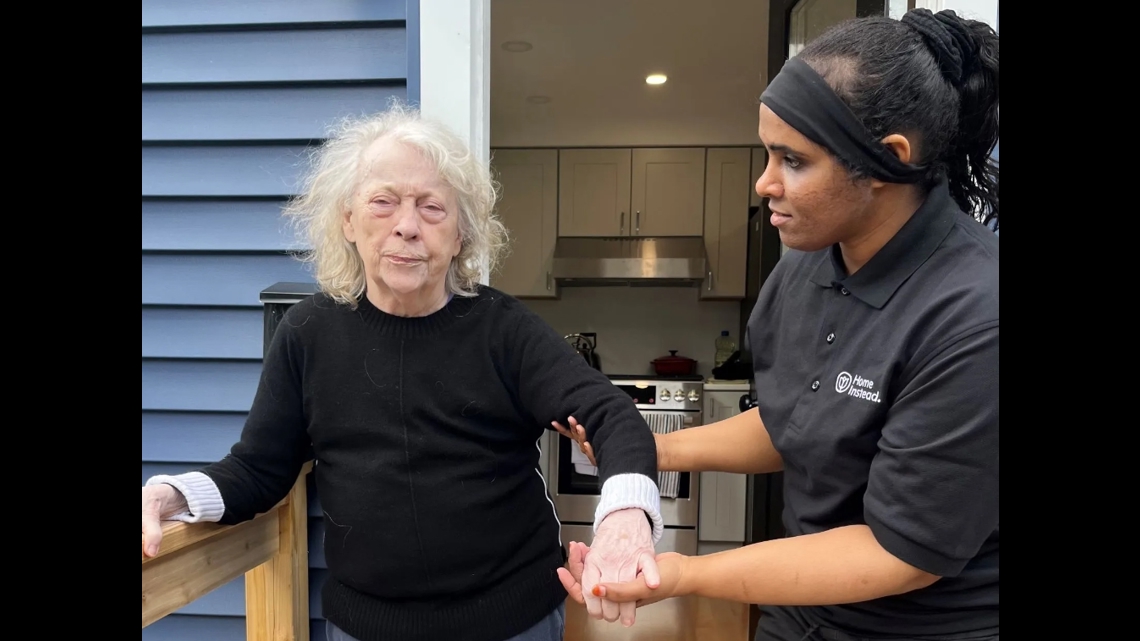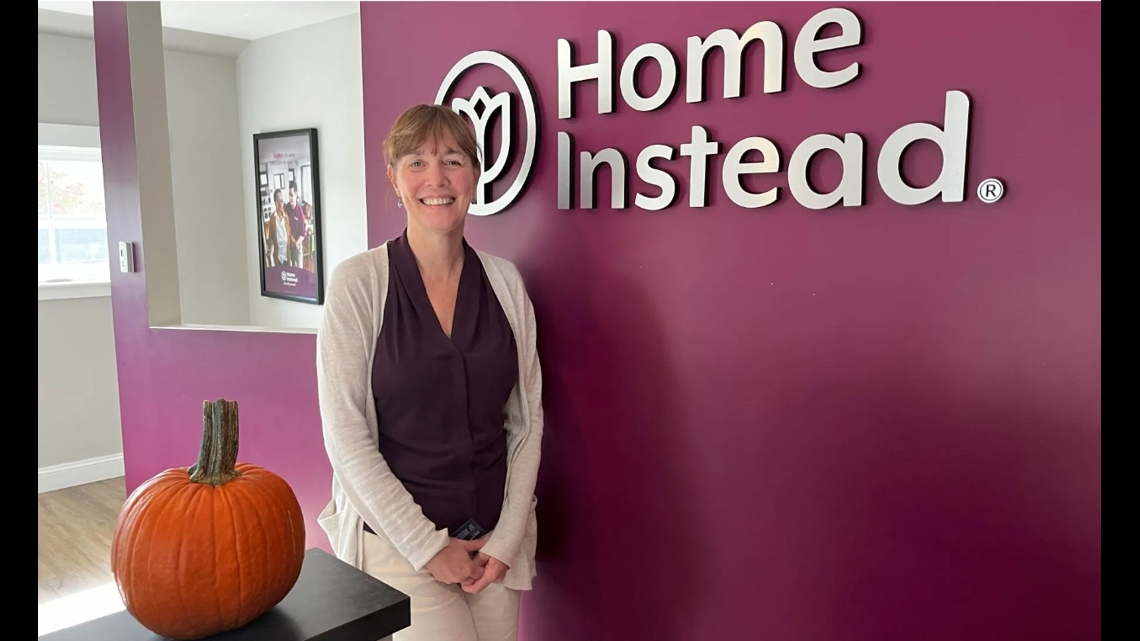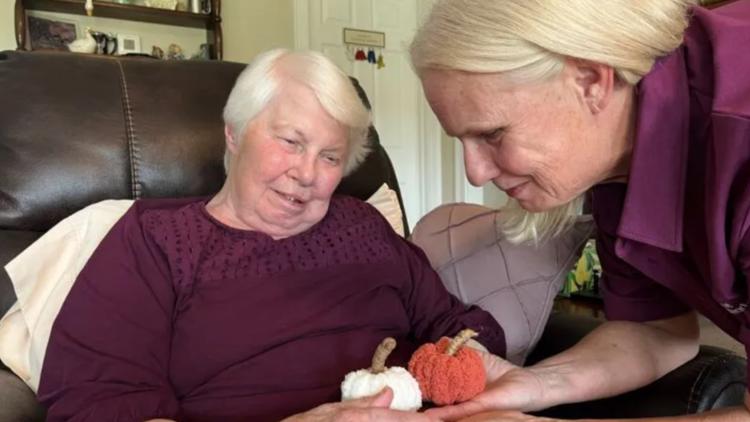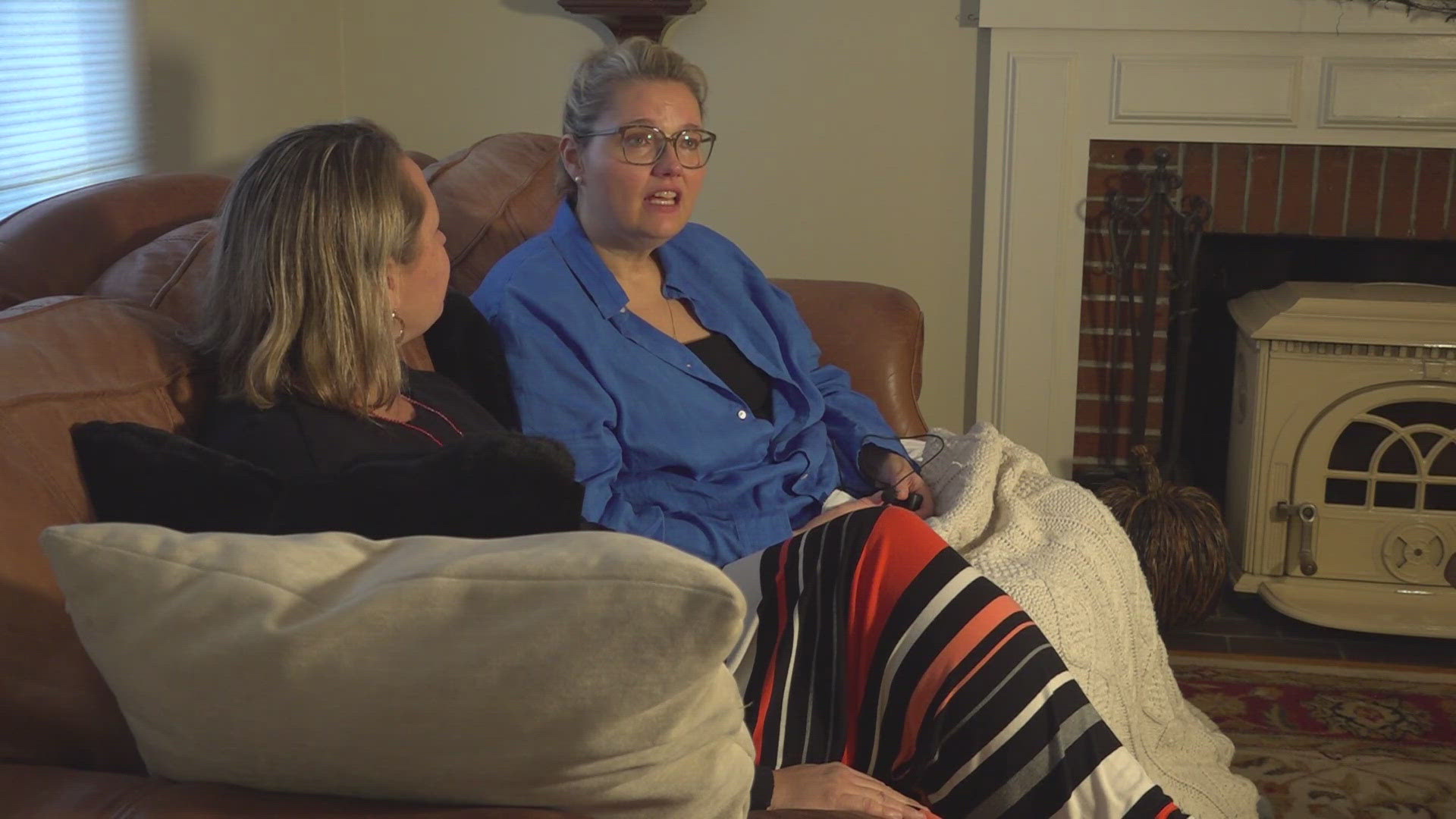MAINE, USA — Agencies that employ caregivers to help older adults and disabled people in their homes are now required to be licensed with the state, according to new regulations that went into effect in August.
Licensing these agencies will establish standards they must adhere to, mechanisms for oversight and enforcement actions for failing to comply, as well as an appeals process if an agency disagrees with an enforcement decision from the Maine Department of Health and Human Services.
Instead of a $25 registration fee, personal care agencies will now pay a $500 initial application fee and then a renewal every two years that starts at $200 and is based on the number of employees.
“The licensure process establishes minimum standards for quality, safety, and client rights that apply to all agencies providing these services equally regardless of payment source,” said Lindsay Hammes, spokesperson for DHHS. “It also allows the department to address deficiencies through the licensing process, whereas the previous registration process did not include authority for direct enforcement by the department.”
A number of personal care agency owners told The Maine Monitor they were generally supportive of the licensing change and the increased regulations, but worried that additional requirements could force them to increase their rates, which could push potential clients to cheaper and less regulated options.
They are working to establish an association of personal care agencies to better advocate in the Legislature and pursue some changes to the regulations.
Renate Scholz, franchise owner and president of Home Instead in Gorham, said she was surprised eight years ago when she entered the caregiving field to learn that personal care agencies weren’t licensed.
“We have our most vulnerable population and we have people going in with no real oversight so I do think licensing is a good thing,” she said. “(But) I think we have some kinks to still work out for sure.”
New requirements
Scholz and owners of other personal care agencies said that there are a few aspects of the new regulations that could be difficult to meet, such as the requirement that a supervisor observe a new employee at least once every 30 days for the first three months. She noted that this will be time consuming and that it might be more useful to conduct one or two initial observations and then annually thereafter.
Hammes, with DHHS, said direct supervision is necessary for new employees because the rules allow agencies to hire employees who are enrolled in a training program but have not yet been certified.
The new regulations stipulate that all employees who provide direct care must be a certified nursing assistant or have either completed or enrolled in a department-approved training to be a personal support specialist, a type of non-medical direct care worker. “Current PSS and CNA credentials will be recognized in the licensing process,” Hammes said.
Scholz said it makes sense to require employees to be at least a personal support specialist. Her agency already had a “rigorous” training program that she hoped would be approved as equivalent to the department’s training for personal support specialists, but she has been told that won’t be the case.
The personal support specialist training program is 50 hours and Scholz’s agency pays its caregivers $18 an hour for training, which comes out to $900 per caregiver. She has about 80 caregivers that would need additional training, which comes to $72,000.
“Our goal is always to provide the highest possible quality care while keeping the cost as low as possible — we don’t have a large profit margin that can easily absorb that kind of expense,” she said.


Sue Arsenault, owner of Align Home Care, said about half of her 50 employees will need to do additional training to meet this requirement. Yet most of the work they do for clients, she said, shouldn’t require them to have these certifications. Her caregivers primarily provide assistance with transportation, cleaning and meal preparation, and she said she should be allowed to train them her own way, rather than following a “cookie cutter” program from the state.
The new rules stipulate that personal support specialist training is not required “when the services provided are limited to meals, managing money, shopping, light housework, and communication.” Arsenault said her caregivers provide enough personal care that they would still be required to do the personal support specialist training, even though it strikes her as unnecessary.
“It’s not a hard job,” Arsenault said. “It’s an emotionally hard job, (but) if you have the right person with the right intention that’s trainable and can do all the personal care skills with a client that has specific needs, we always place the caregivers with the appropriate client.”
The initial version of the regulations proposed by the state seemed to be centered on a medical model of care, she said, but she was glad to see DHHS roll back many of those elements for the final version in response to submitted comments from the industry.
Cost concerns
Align Home Care charges almost $46 an hour, and Arsenault said rates have increased primarily as a result of increased wages for workers. Arsenault said the “unfortunate” reality is when wages for caregivers are increased to $22 or $25 an hour, what she called “a livable wage,” agencies like hers can’t meet that without also increasing rates for their clients.
“I feel like we’re heading for a crisis to be honest with you,” Arsenault said. “Our services are very expensive so it’s only a small percent of people that can afford home care. … When I look at the big picture for home care, I see a huge need but there’s going to have to be some big changes from the state as far as funding and promoting the caregiving profession.”
Linda Adams, who owns Linda’s Home Care Planning and Staffing in the Midcoast area and serves between 25 and 30 private-pay clients, said she was supportive of the employee training requirements and was already in the process of getting them up to date.
Adams seemed more wary, yet resigned, to the much higher licensing fees. Previously, agencies were required to pay a $25 registration fee. Now they will have to pay an initial application fee of $500 and then a license renewal fee every two years that is determined by how many clients they have. Adams, who falls under the category of 21 to 50 clients, will pay $1,500. (The state originally proposed a $1,000 initial application fee, but lowered it in response to public comments.)
Scholz, with Home Instead, said she worries about pricing people out of care, noting that people are already waiting to establish home care until they absolutely need it.
“The reality is we live in Maine; there are definitely people that are sitting on a bunch of money that don’t want to spend it, and I get that. But there are also so many people that don’t have money to pay for care,” she said.
It’s a “juggling act,” she said, trying to figure out how to keep the cost of care as low as possible to serve as many clients as they can while still paying caregivers the wages they deserve.
For those who qualify medically but can’t afford to pay out-of-pocket for home care, there are multiple MaineCare or state-funded waiver programs. However, many of these programs have long waitlists and even those who have been approved often struggle to find caregivers to work for all the hours they’ve been approved for.
A recent state report showed that 71 percent of around 1,500 people receiving the Section 63 voucher were not receiving all the personal support services or nursing hours they’d been approved for.
Home Instead, which has 70 clients and 99 caregivers, doesn’t have a waitlist. Their rates start at $40 an hour, and their clients pay out-of-pocket or use long-term care insurance.
Continued debate
Scholz worries that Mainers who can’t afford an agency may instead turn to private caregivers who post their services on websites like Care.com. These places can be hit-or-miss, she said.
“To some extent with agencies in Maine you didn’t always know what you’re getting,” she said. “Part of the point of the licensing role is that if you’re going through an agency, you can rest assured that the people that you’re hiring have a certain level of training, have a certain level of insurance (and) have a process for dealing with any kind of complaints through the state.”
(A Care.com spokesperson said the company conducts background checks on all caregivers before they are allowed to interact with families and those background checks are updated annually. The company also offers safety resources for families and will remove a caregiver if they have violated the company’s policies.)


Hammes said online agencies that conduct business in Maine and meet the definition of a personal care agency would be required to be licensed under the new rules, but that this did not apply to Care.com. Private care workers who do not work for an agency are not covered by the new regulations.
“The Legislature has the power to change the statute if it deems appropriate to include regulatory oversight of private caregivers hired by patients and/or their families,” Hammes said.
Newell Augur, a partner with Pierce Atwood who acts as regulatory counsel for personal care agency FCP Live In, is working with other personal care agencies to form an association that will lobby in Augusta and push for some changes to the regulations.
These lobbying efforts may focus on loosening the initial monthly observation requirements and ask for some flexibility on training requirements for people from other states or with significant experience, Augur said. He added that he’d like to see the licensing fees go towards complaint investigations for people who received concerning care from the private caregiving market.
Many personal care agencies felt like they didn’t have much of a voice throughout the regulatory process this summer, Augur said. There were listening sessions, but the rules that were initially proposed in June alarmed the agencies and prompted nearly 60 written comments.
Augur said the Department of Health and Human Services made numerous changes to the first draft in response to the comments.
“They did listen to us and we were appreciative of that,” Augur said.
This story was originally published by The Maine Monitor, a nonprofit and nonpartisan news organization. To get regular coverage from the Monitor, sign up for a free Monitor newsletter here.



